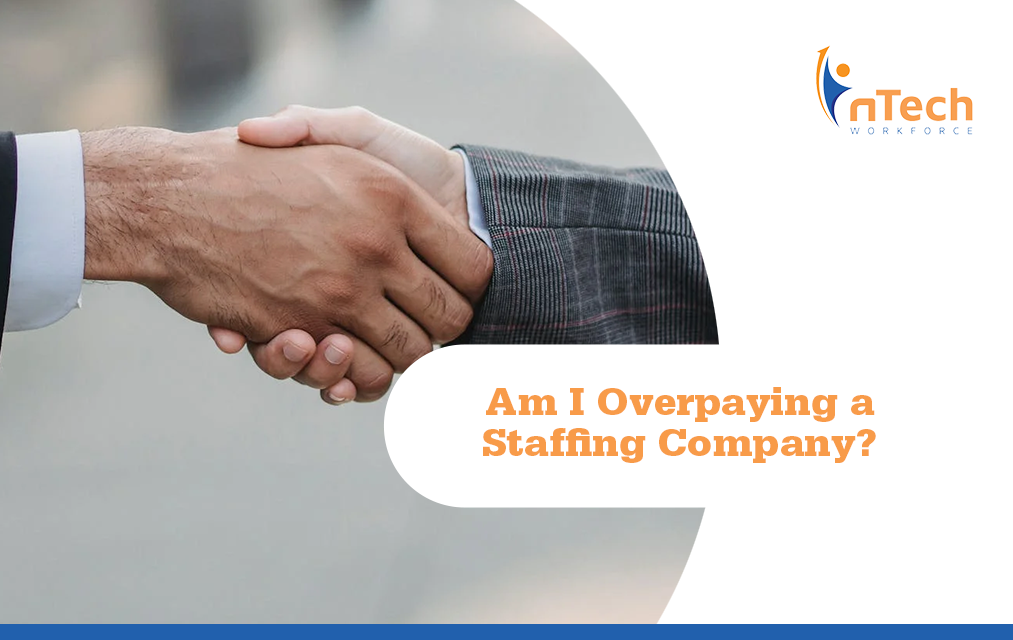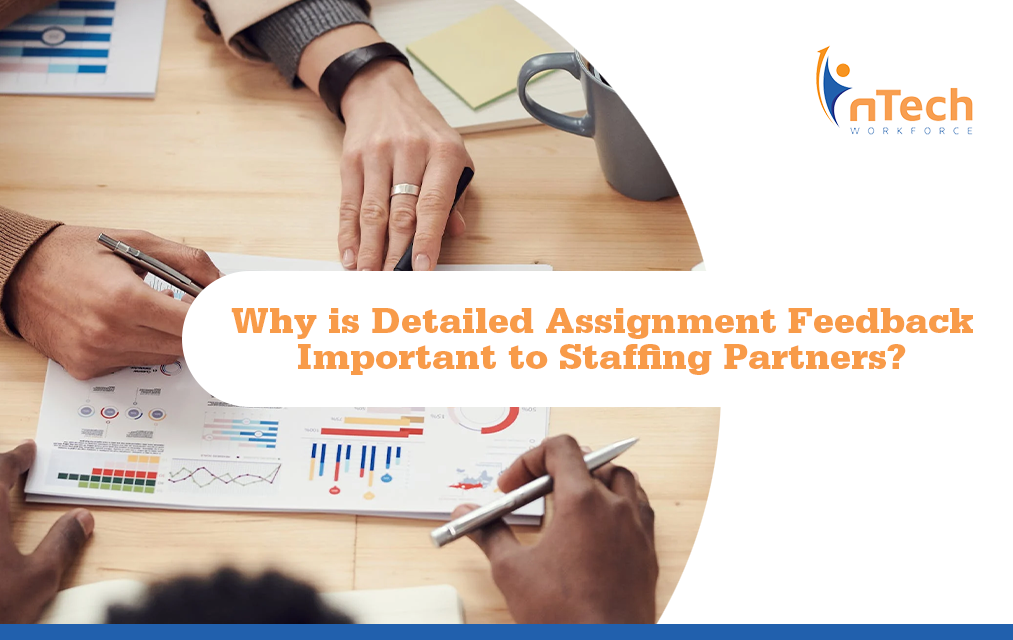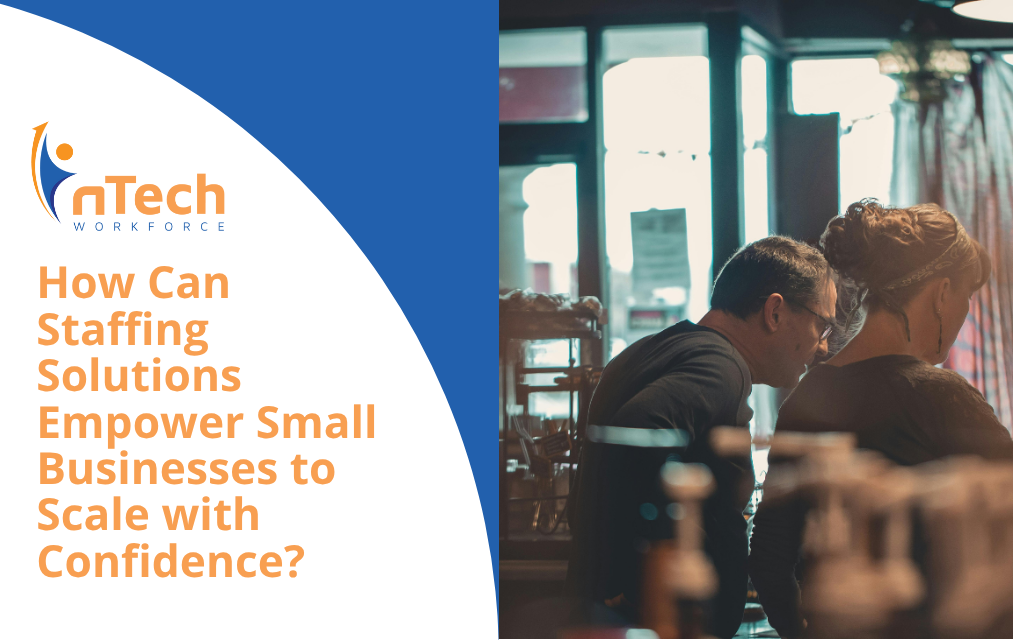What Does the Commission Structure Look Like When Collaborating With a Staffing Agency?
Understanding the dynamics of commission structures within the staffing and recruiting industry is crucial for businesses seeking talent acquisition...

When the economy is in flux, organizations look for ways of cutting costs, and that typically begins with outsourced work. Leaders want to see if outsourcing will save on extra costs.
The cost of staffing companies may not always be clear. With a focus on hourly, temp, and contract labor (as opposed to direct hires), let’s look at some of the costs of working with a staffing company.
Staffing companies find and manage contract workers. So when contract workers receive their paychecks, the name of the staffing company is on the check as opposed to the organization they are working for. Staffing companies will also manage benefits and other related services for those workers.
Payment changes hands through a bundled fee with a markup on top of employee wages which goes to the staffing company for the services they provide. So, how much do staffing services cost? Arthur Ransier of nTech Workforce states that “the average markup varies, but is typically around 50%.”
The cost of the staffing company includes everything from FICA (federal payroll tax), including Social Security and Medicare, which is approximately 7.65%. It also includes unemployment taxes (roughly 1%) which vary from state to state (6% FUTA + 0-12% SUTA with wage caps of $7,000-40,000).
Ransier adds, "Other associated costs might be medical insurance, paid leave, state and local taxes, employee benefits mandated by state and local governments, a retirement match, or operating costs – such as the cost of technology or job boards – and the cost of recruiting, finding and qualifying people for jobs”.
All told, “...if you have a market rate for a job that pays $40 in wages, it’s not uncommon for a staffing agency to charge 50 to 60 dollars an hour as a bill rate for their actual costs and the profit that’s built into that.”.
Conversely, for the recruitment of permanent workers, the staffing organization will charge a one-time fee. Ransier notes that “typically, the staffing organization is going to wrap all their recruiting expenses into a single, one-time contingent fee, which ranges depending on the volume of competition, and they're going to charge anywhere from 15 to 30%.”
According to Arthur Ransier, for labor categories that are “more competitive or that fill a specific niche, such as executives, skilled engineers, or other STEM occupations, it's important to be willing to pay both for the service and the talent.”
Some staffing companies specialize in commodified labor categories. Still, others will have more breadth of expertise, and those are the ones who will best be able to fill top-level positions. This is when the cost of a staffing company is less relevant than its track record.
The biggest advantage to working with a staffing company is the flexibility afforded to the internal talent acquisition team. Instead of retaining their staff of 5-10 recruiters throughout the year on salary, an external staffing company can fly in and out only when the search volume is such that additional help is warranted.
If a company’s baseline is ten hires per month with a variance of up to 50, that company might save by retaining only enough internal staff to recruit for ten positions and bring in extra help during the swells.
This way, companies save money with a reduced headcount. They also save by not having to lock in recruiting technology contracts and services that might not be necessary to have year-round. So if you’re asking yourself, “Can staffing companies save me money?”, then the answer is yes.
“The added non-cost benefits of working with a staffing company might include the expertise of working with an organization of that particular specialty in finding, engaging, and bringing in talent, specifically outside talent. Staffing organizations tend to stay abreast of industry best practices,” states Ransier.
For instance, nTech Workforce keeps track of market data for all job categories we staff. This can involve comparing the cost of a position in Baltimore versus Chicago. Having this information ensures the companies we serve are competitive in the job market, but it also ensures that we are competitive with other staffing organizations.
At nTech Workforce, we work closely with companies to lend our expertise and experience in bringing the right people to get the job done well. Our solutions are optimized to solve hiring, productivity, and diversity challenges through our experience, technology, pricing, and community-minded approach to staffing.

Understanding the dynamics of commission structures within the staffing and recruiting industry is crucial for businesses seeking talent acquisition...

Feedback entails evaluating the performance of an individual or a group of workers in their job role or of an assignment they have completed. For...

Hiring managers, let’s get real for a sec. Scaling a small business is a wild ride. It is that exhilarating mix of "We are doing it!" and "What have...